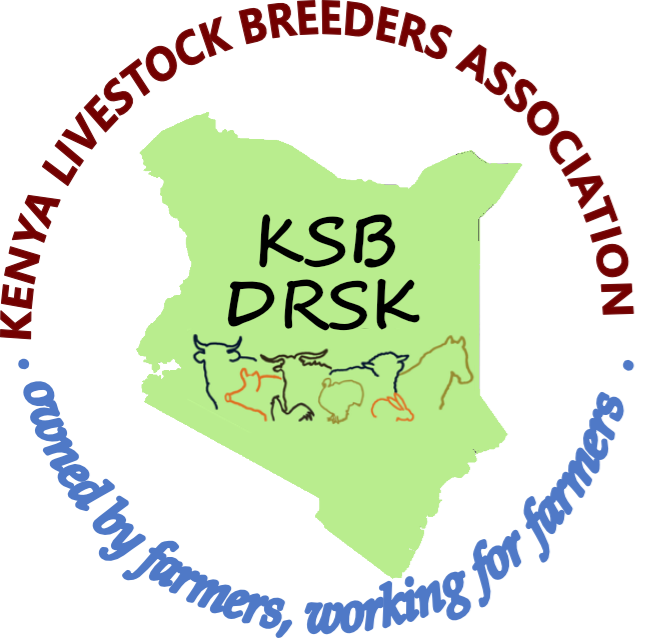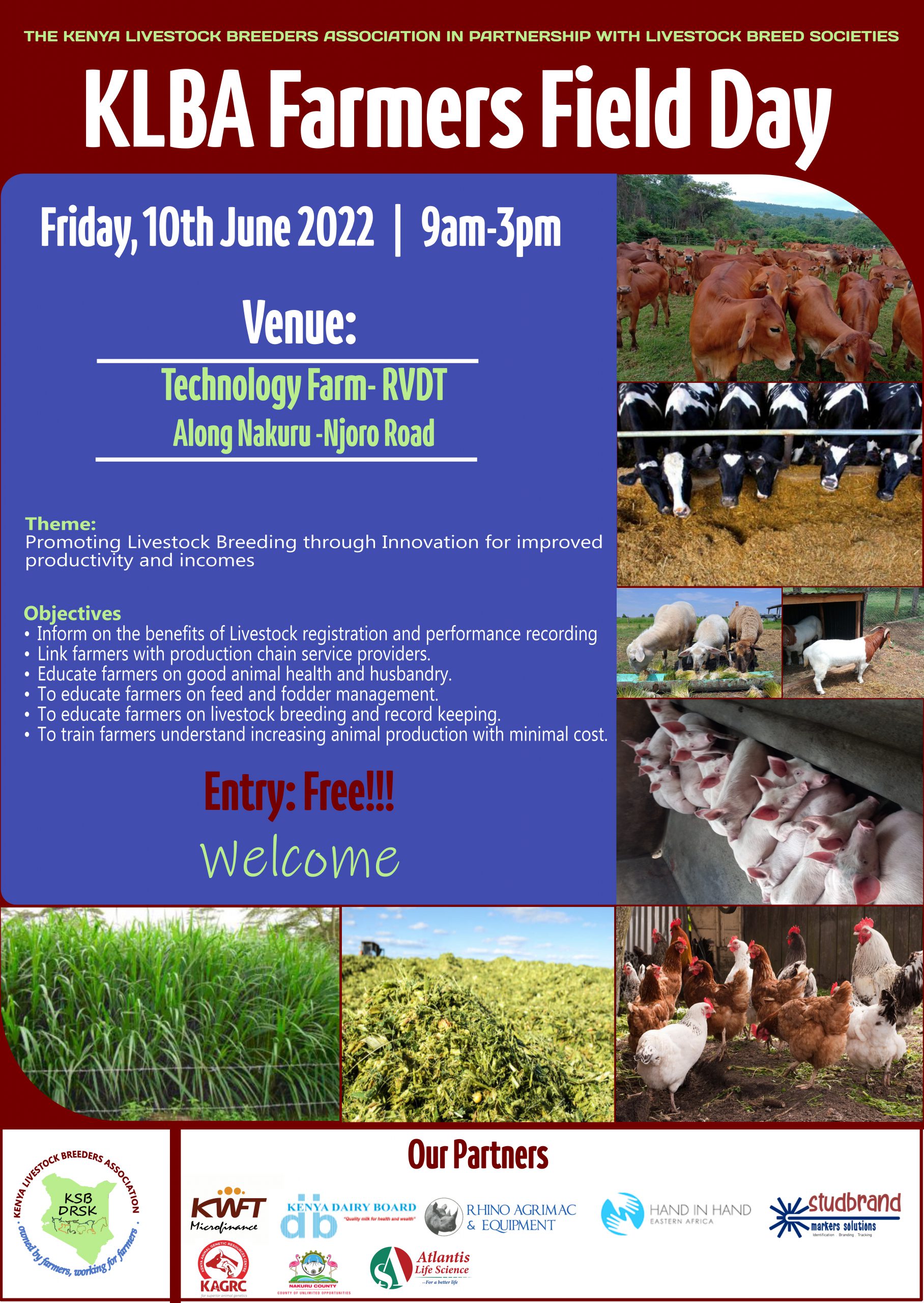FAQ
General Questions


Livestock Registration is the action by which information on livestock (such as identification, animal health, movement, certification, epidemiology, and establishments) is collected, accurately recorded, securely stored, and made appropriately accessible and able to be utilized on-farm, by a registry body or at the national level. In Kenya, these records are maintained by KLBA through the Kenya Stud Book (KSB).
- Keeping records with proper animal Identification is an essential tool for farm management (selection, culling, etc)
- By top crossing with pedigree sires you improve your stock by each succeeding generation until the pedigree standard is reached (Grading up).
- Potential buyers can be supplied with the animal breeding certificate. On-farm sales and export markets attract higher prices with registered stock.
On the other hand, livestock recording in Kenya involves the recording of milk in dairy livestock. Milk recording is a systematic measurement and recording of daily milk yields of animals which are summarized at the completion of lactation in the form of a lactation certificate. It also involves the periodic sampling of milk for quality analysis for individual animals. This service is provided by KLBA through the Dairy Recording Service of Kenya (DRSK).
Milk recording contributes significantly at the following levels: -
Farm-level, National level International level.
- Information included on the certificates becomes a reliable guide for the herd owner upon which sound management and breeding policies are formulated.
- Milk records are also important resource material for research, academic, and development of the dairy industry in support of national food policies.
To join KLBA, farmers are required to contact any nearest livestock breeds inspector or communicate to the KLBA office through info@klba.or.ke. Or call the office 0702 251 249.
Arrangements will be made for a breed inspector to come to train the farmers on breeding and visit the farms for inspection.



